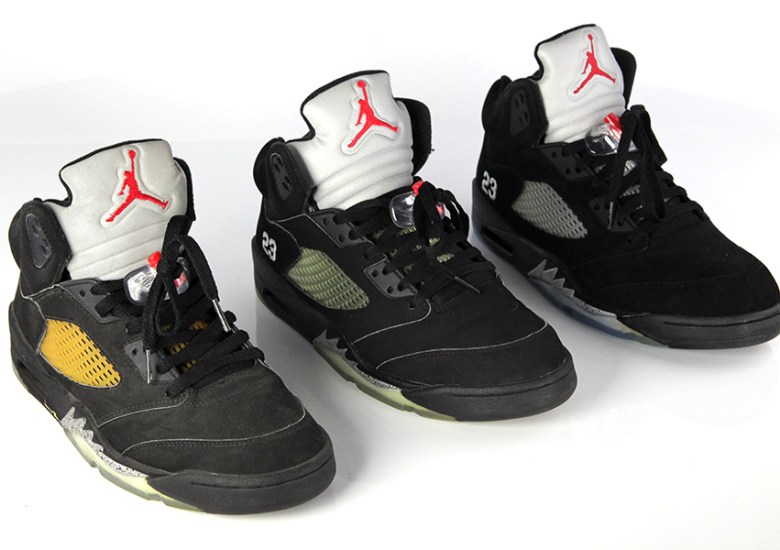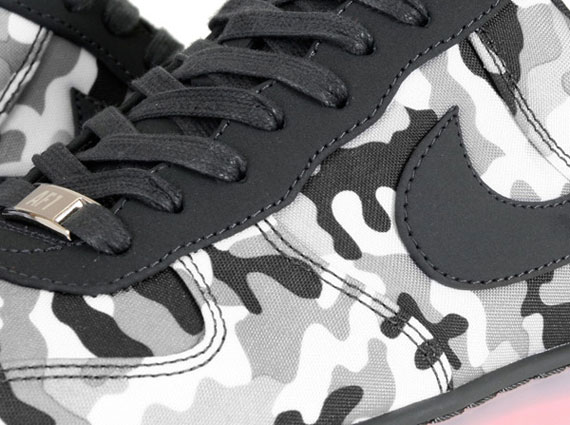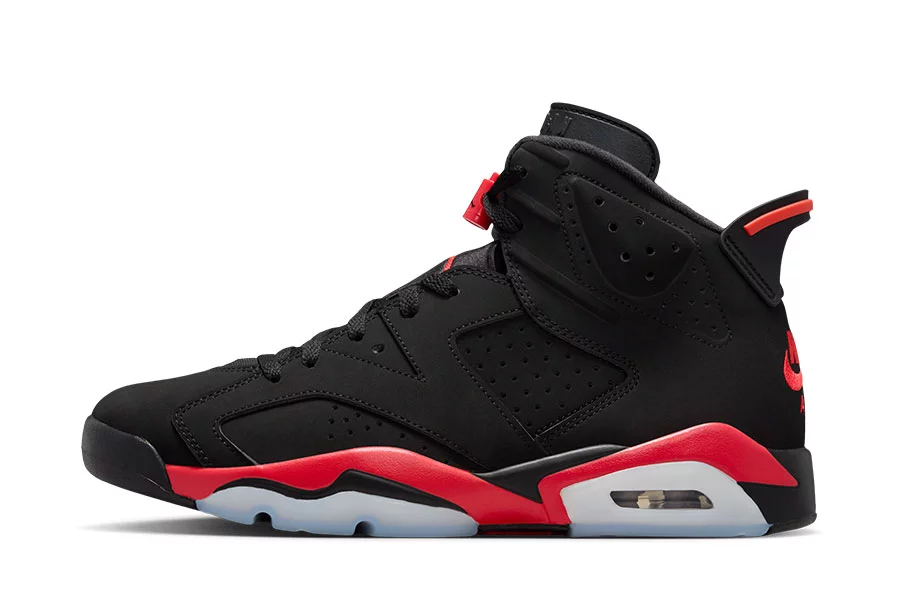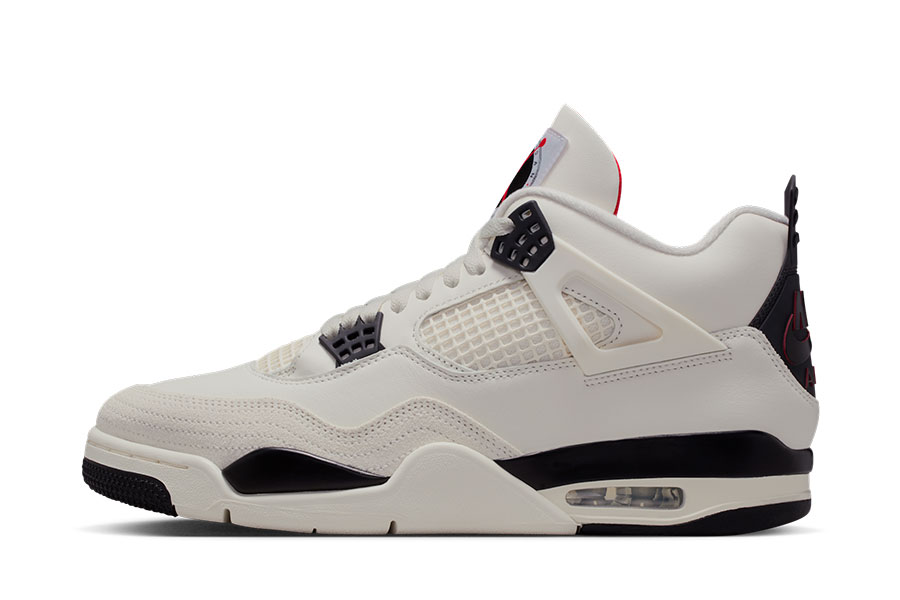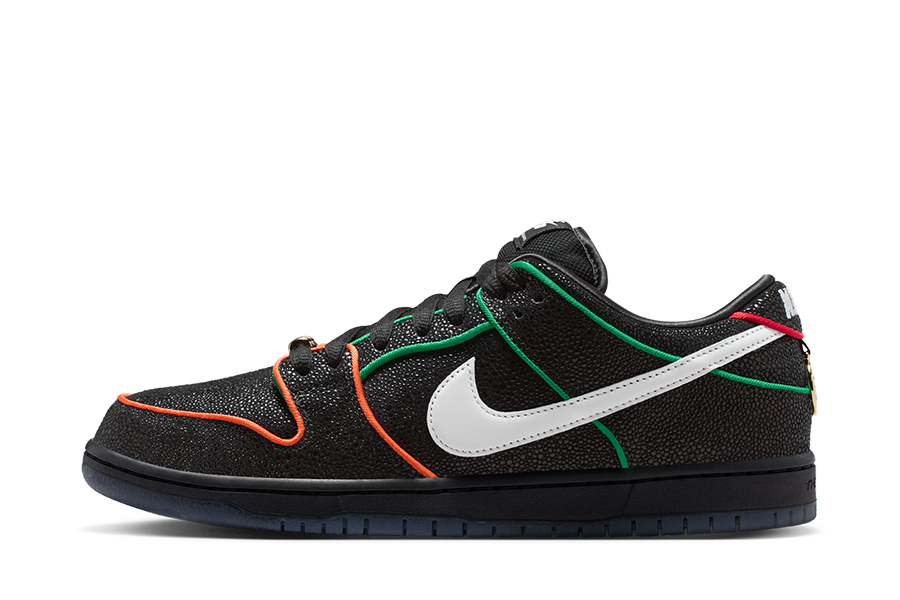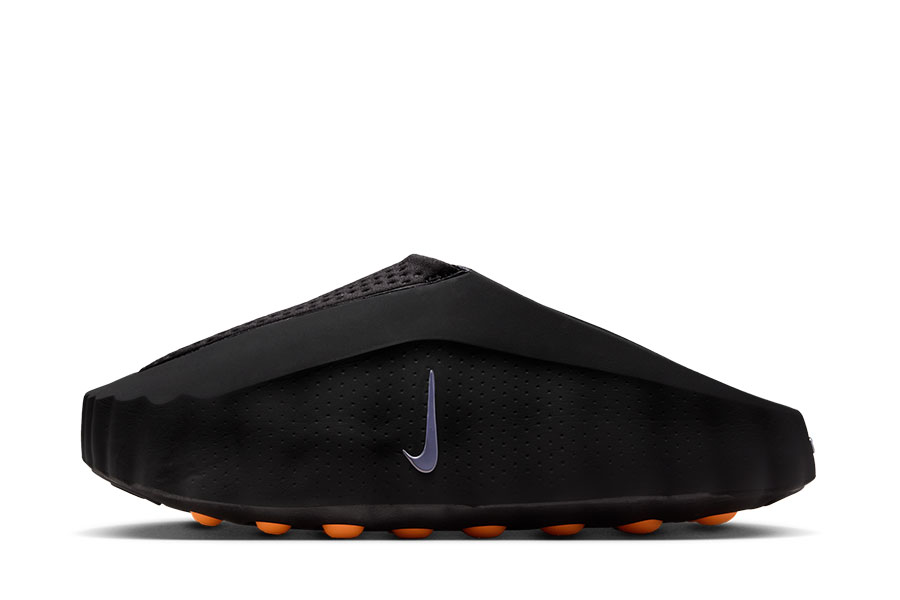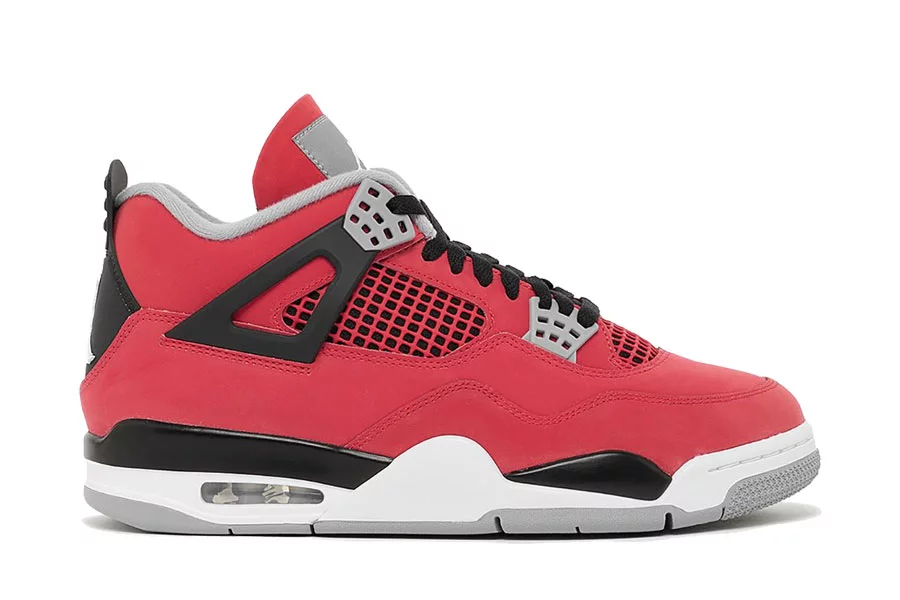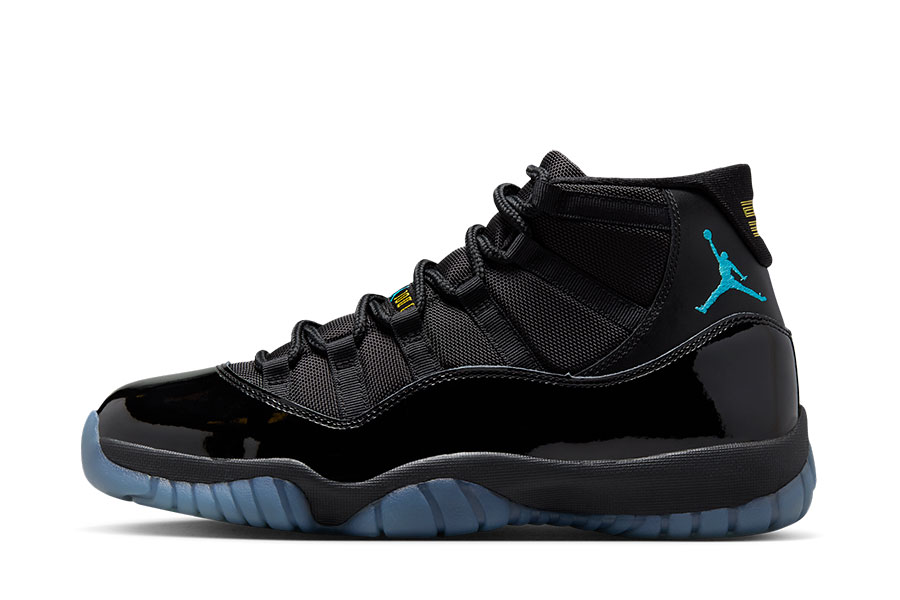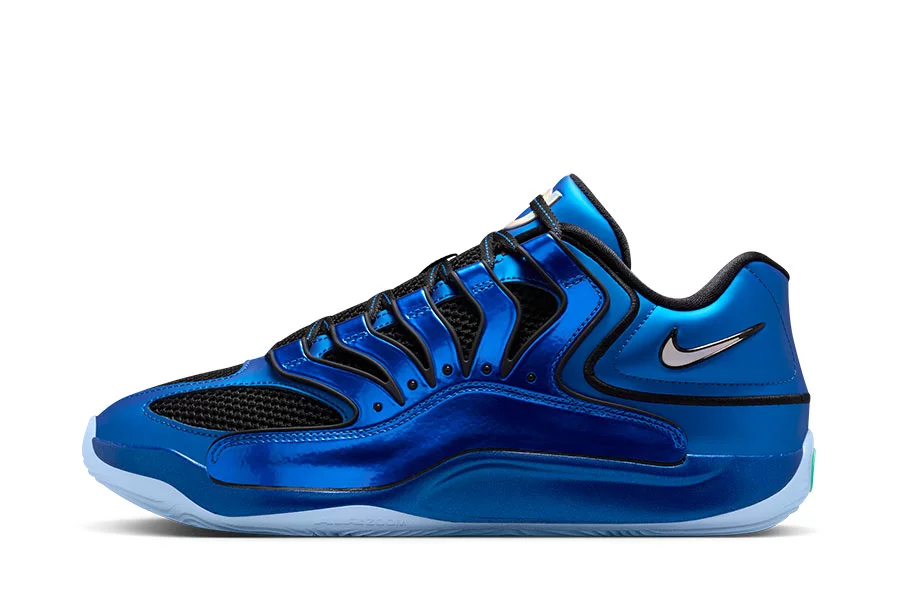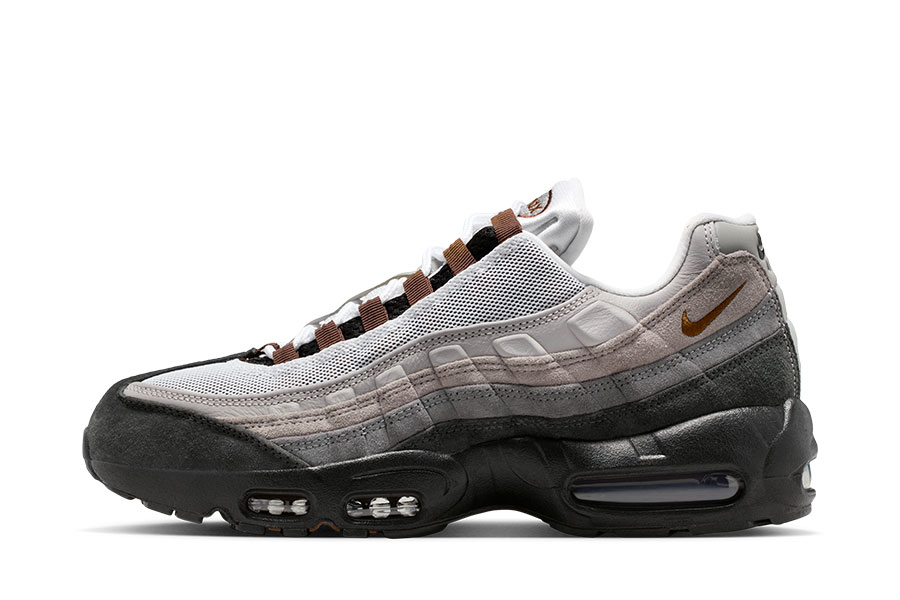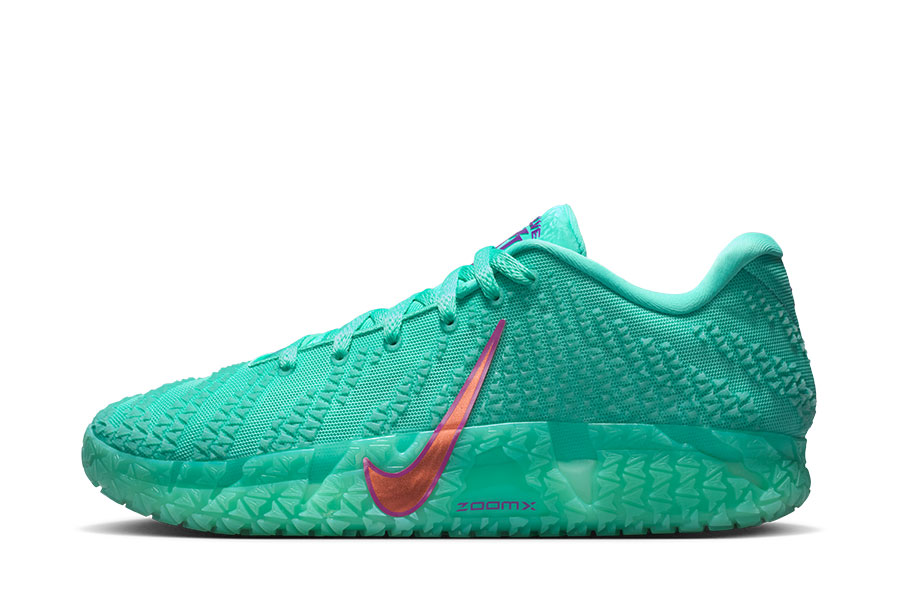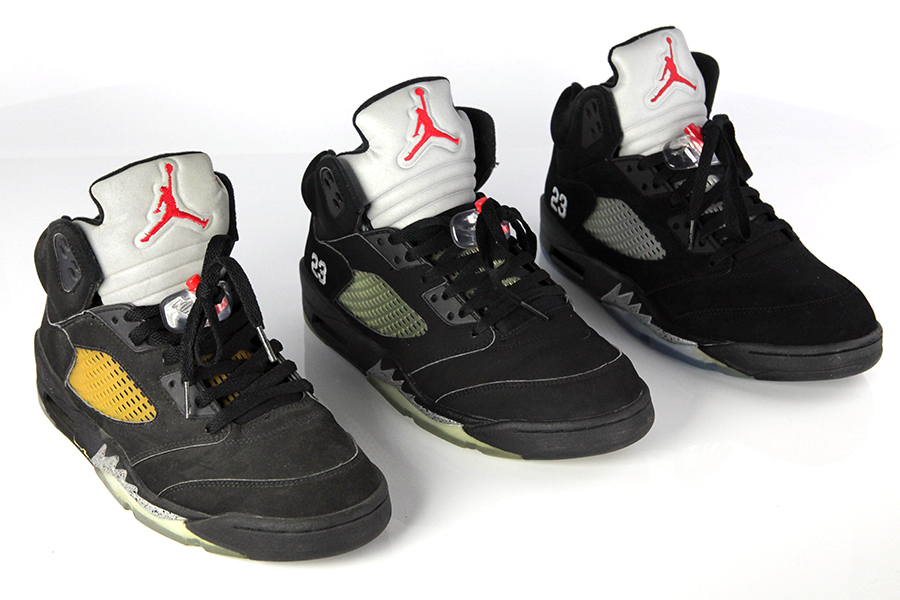
On January 21st, Jordan Brand began the #XX8DaysofFlight campaign, counting down all of the game-changing and history-making Air Jordans leading up to the debut of the Air Jordan XX8. With the entire 2013 calendar year being a milestone 23rd anniversary for the Air Jordan V, we can definitely expect a slew of Retro releases of original colorways, starting as soon as tomorrow with the release of the ‘Fire Red’. The most re-released Air Jordan V, however, is the iconic Black/Metallic Silver colorway, which hit stores in 2000, 2007, and 2011 – and another drop in 2013 isn’t entirely out of the question. With that said, let’s take a closer look at three generations of Air Jordan V Retros on Day 5 of the Jordan Brand #XX8DaysofFlight.
The Air Jordan V is often celebrated by Jordan fans as being among the greatest Air Jordans of all-time and certainly falls in that span of the most lustrous period of the golden Tinker age of Jays. It introduced three major design elements to the Air Jordan line that have since become go-to options for elevating the design of shoes – namely the translucent outsole, reflective material on the massive tongue, and snazzy lacelock. All three were definite “firsts” for Air Jordans, and twenty three years after the introduction, those three elements have become standards in today’s most coveted sneakers. So is the Air Jordan V the most influential Air Jordan in history? Flip through this walkthrough of the Air Jordan V Retros over the years and chime in.
Photography: John Kim/Sneaker News
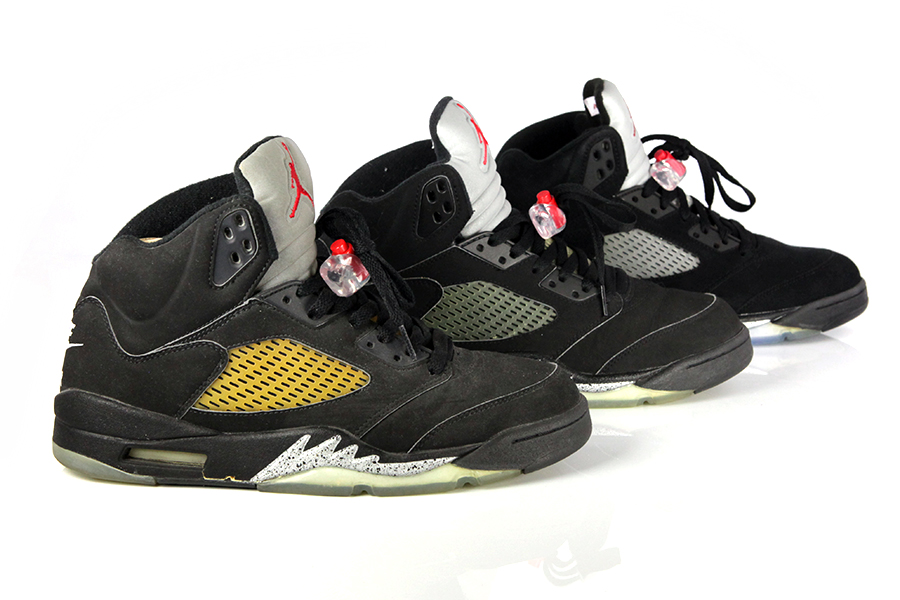
Thanks to continual Retro releases, Jordan fans don’t have to worry too much about older pairs becoming unwearable. Pictured here are the 2000, 2007, and 2011 Retro releases, with the eldest of the three at the very front. Yellowing on the upper translucent netting became an inevitable sign of aging, but some say the discolorization gave the shoe some “character”. Agree?
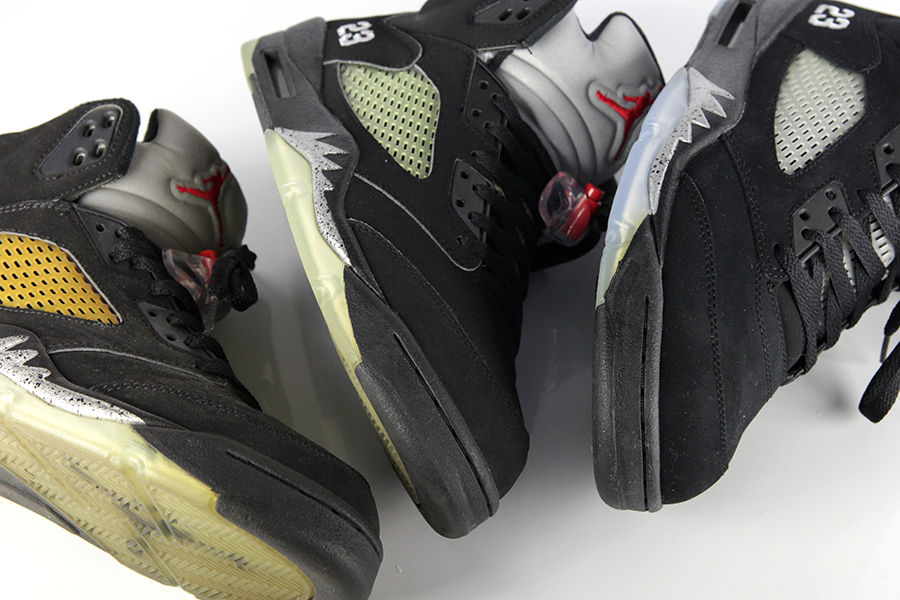
One aspect of the Air Jordan V that has remained constant throughout the years is the Silver/Black speckled detailing on the forefoot of the shoe – a definitive trademark of the Air Jordan V and one of the standout details of the entire Air Jordan legacy. The inspiration came from the Mustang fighter plane that did its damage during World War II.
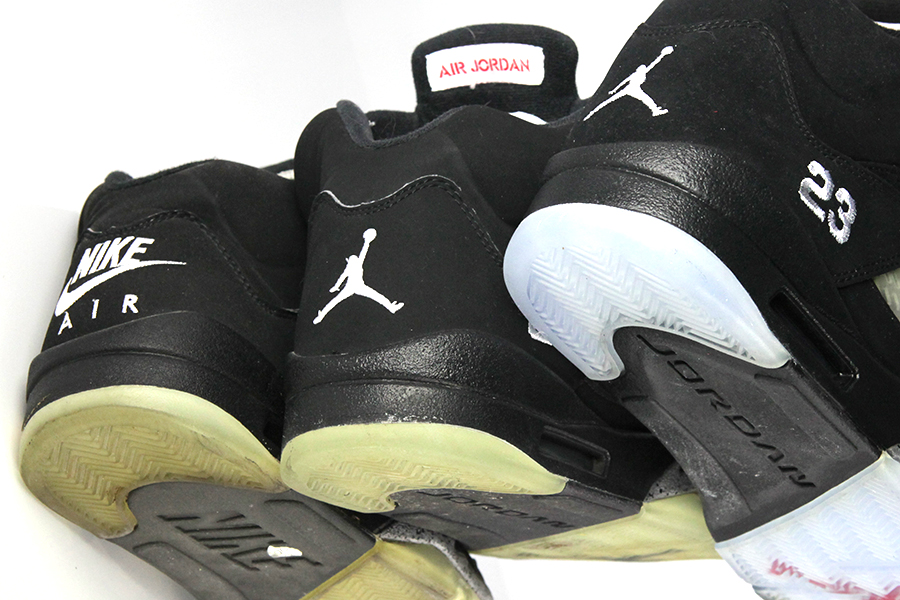
Triple V Soul: Here’s a quick look at the heels of three Black/Metallic Air Jordan Vs that released since 2000. The Air Jordan V was the first sneaker to featured this new take on soles, and today, the translucent material has become one of the most coveted details on sneaker designs.
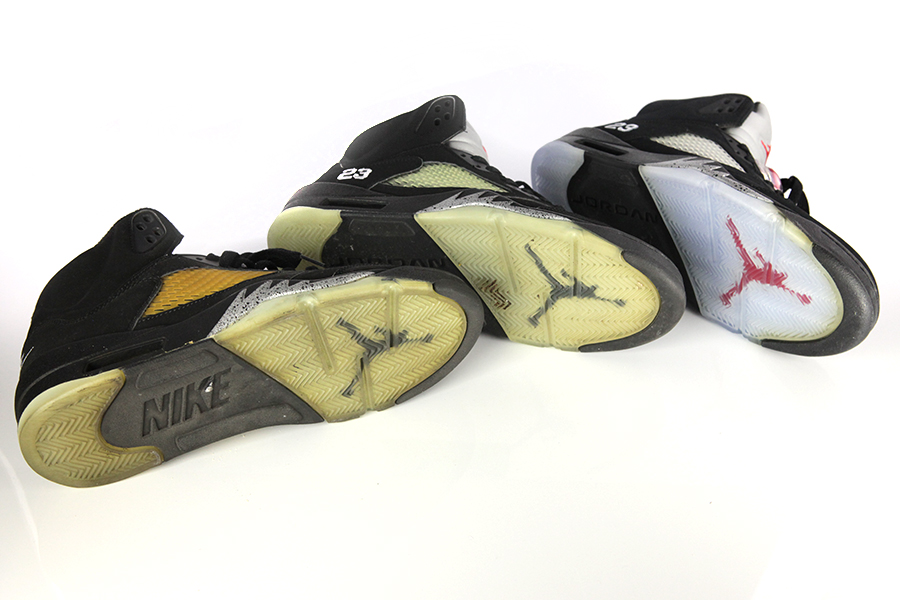
Kicks are meant to be worn, as made evident by the first two pairs above. A quick shot of the soles reveal that the Air Jordan V used ‘NIKE’ up until the 2000 releases, but switched to JORDAN in the following 2007 and 2011 models.
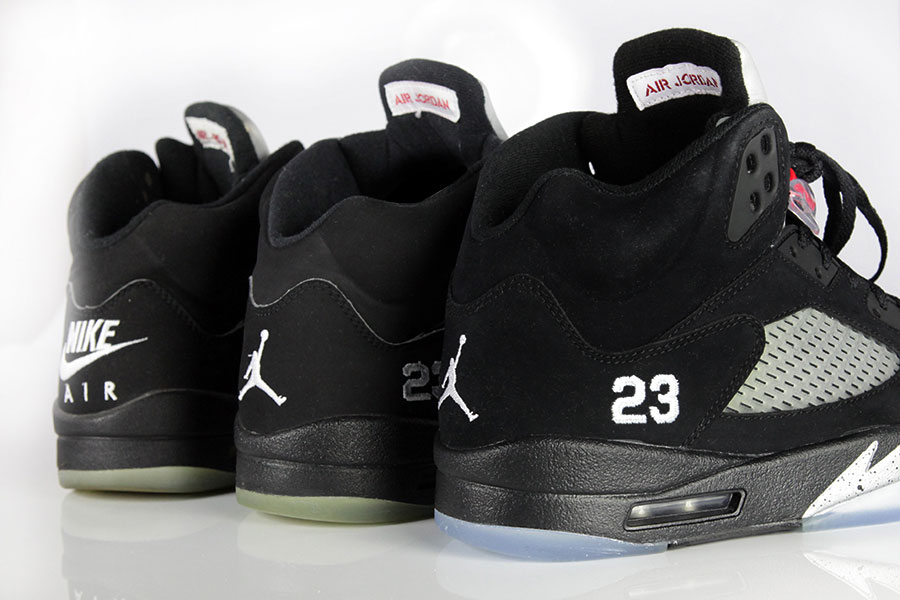
The original Air Jordan V didn’t feature ’23’ stitched on the heel – that was only a PE version. The 2000 Retro didn’t use it either, but the ’07 and ’11 versions did. The ‘AIR JORDAN’ label on the back of the tongue was carried over from the Air Jordan IV.
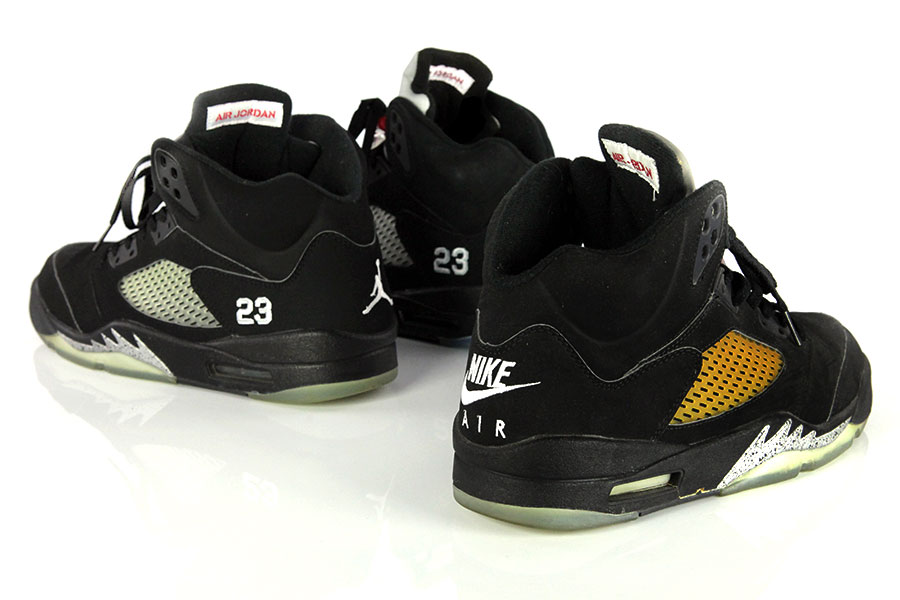
High value is placed on ‘Nike Air’ branded Air Jordans, as made evident by the current craze over the upcoming Air Jordan III Retro ’88. Would there be a similar reaction if the Air Jordan V returned with Nike Air?
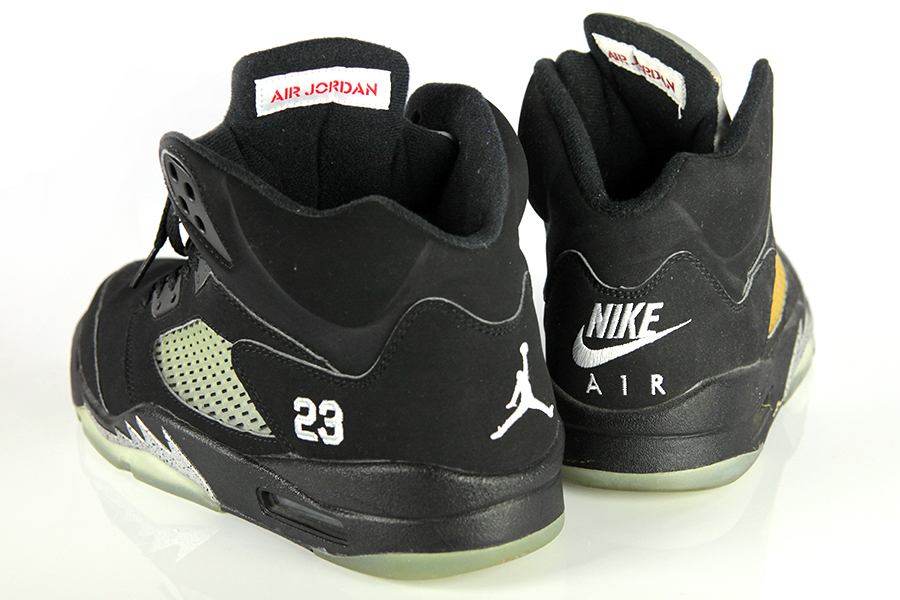
A quick side-by-side comparison between the 2007 Retro (left) and the 2000 Retro (right). One difference is rather obvious…can you spot the other?
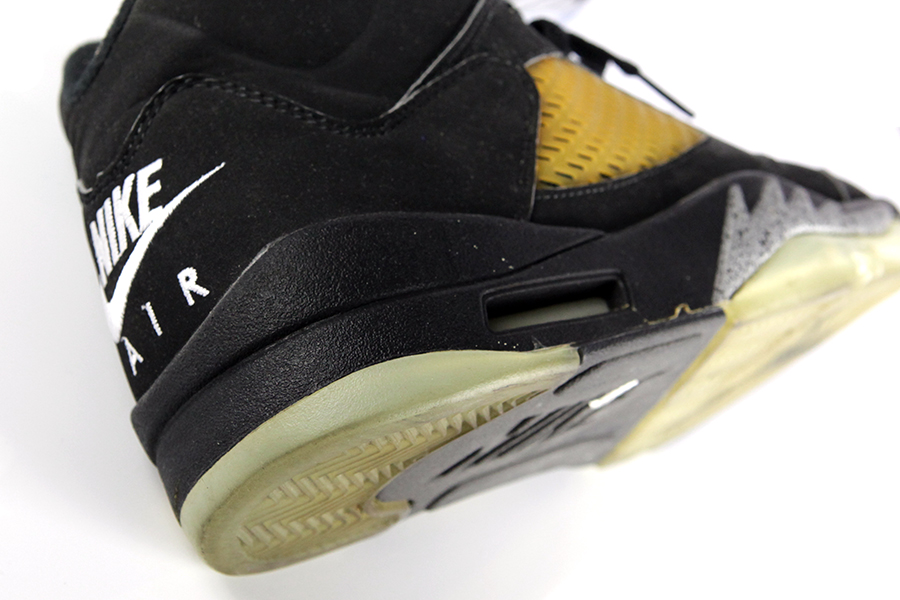
Here’s a close-up shot of the Air Jordan V Retro Black/Metallic Silver from 2000. Durabuck uppers, no ’23’ stitching, and Nike Air summarize this much-celebrated release.
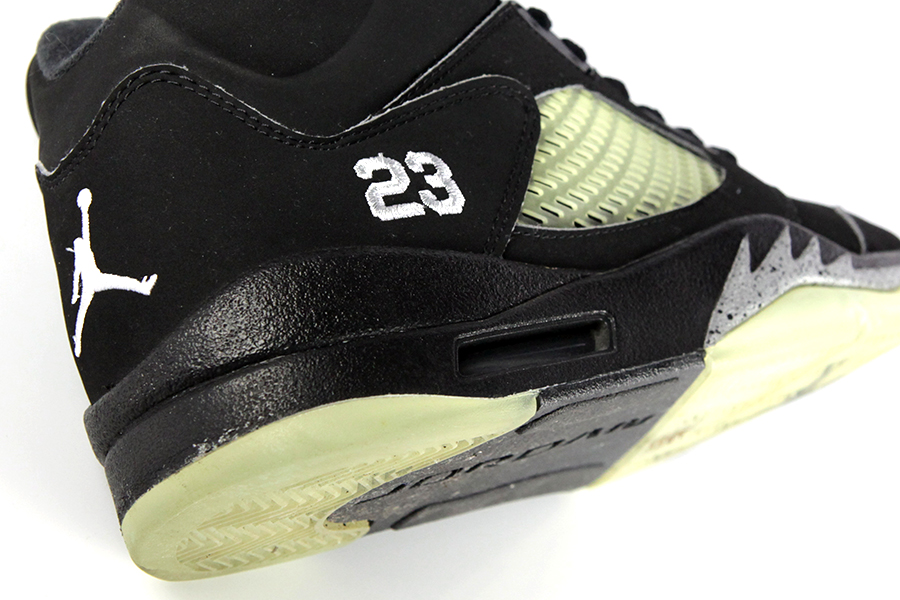
Following the 1999 release was one in January of 2007. A soft nubuck material (similar to durabuck) comprised the upper, but Jordan Brand decided to add ’23’ on the upper while swapping out Nike Air for Jumpman branding.
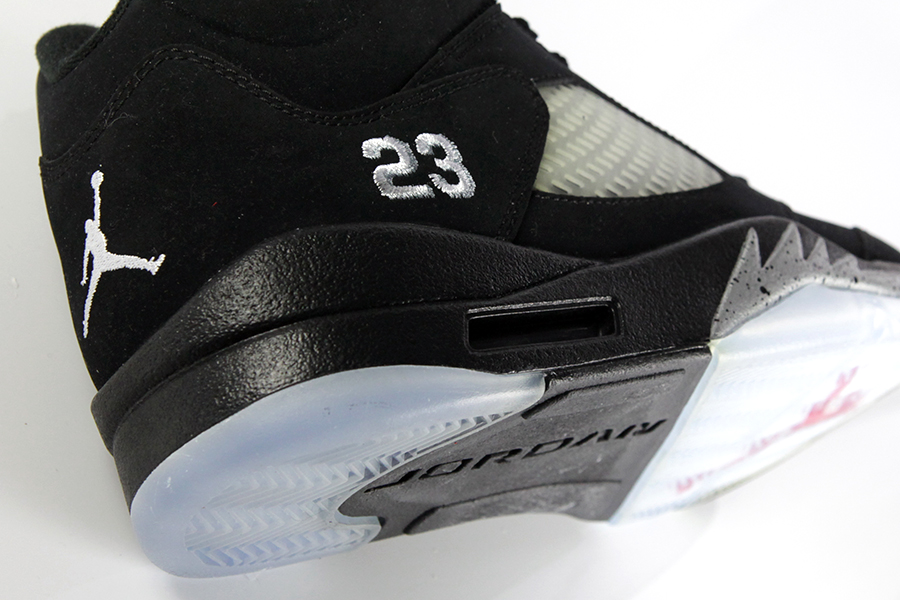
The 2011 version wasn’t much different than its 2007 predecessor, with the exception of a velvety synthetic suede upper replacing the standard nubuck from previous releases and the “blue tint” outsole that has become a standard for all of Jordan Brand’s “icy” soles.

